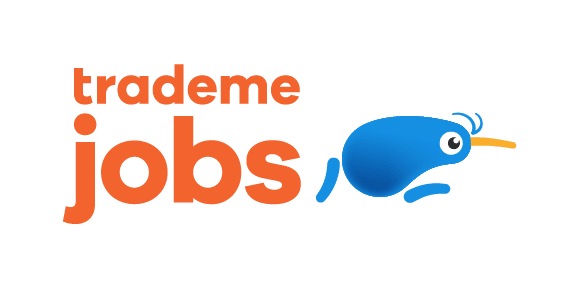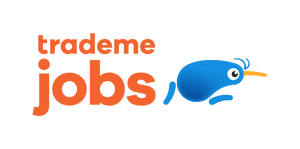And if you do disclose, when’s the best time in the interview process to say something? Disability employment consultant Joshua McKenzie-Brown looks at your options.
All week on The Spinoff we are delving into our relationship with the world of work in Aotearoa. For more Work Week stories, click here.
If you’ve been looking for work lately, the following phrase may be familiar: “We welcome applicants from diverse backgrounds, religions, ethnicities or disabilities.”
You’ll find words to this effect in the fine print of most job ads in New Zealand. Some go further and describe their commitment to an inclusive workforce. But are these phrases merely tokenistic when it comes to disability?
As a person who lives with disability and has worked as a disability employment consultant, I know the difficulty faced by every disabled jobseeker. It all rests on the question: should you be upfront about your disability?
With Zoom interviews now commonplace, many disabled jobseekers are able to stay quiet until they have secured the job. For people who live with invisible disabilities, colleagues and employers may never need to know at all. But what are the rules, and why do some jobseekers choose to disclose while others don’t?
Do you have to disclose a disability?
No. NZ law does not require you to disclose your disability when applying for work.
According to Employment NZ, “while there is no obligation on an applicant for a job to disclose a disability, if the disability may impact their ability to do the job, it may be a breach of good faith obligations if they don’t disclose it to their employer.”
Application forms often ask: “Do you have any condition that would impact or prevent you from doing this job?” If you can do the job to the same level as your non-disabled peers with “reasonable accommodation”, then you are within your rights to answer no. If your disability means you’re unable to do the job to a satisfactory level then you may need to consider applying for a different role.
Remember, your prospective or current employer has a legal obligation to keep any disclosure private and may only disclose your information to other parties with your consent.
So you want to disclose your disability…
This still leaves the thorny decision of when to disclose a disability. What are the options? It’s personal. Whenever I’m asked these questions I draw on my own experiences as a person who lives with spina bifida, but I also reference my time as a professional employment consultant for Workbridge, NZ’s largest disability employment agency.
Choose the scenario that works best for you.
The cover letter
If you want no surprises, this is a good place to make your disclosure. Keep it simple. Further questions, if appropriate, can be asked at the interview.
The interview
Hopefully this means you’ve removed any potential judgement and been offered an interview based on your merits. If you have a visible disability, you may wish to acknowledge it openly now. Remember, people are naturally curious. Interviewers will notice your condition but often not say anything. It’s best to make the first move to answer the unspoken questions they want to ask you. They may not be sure how to do so without offending. Explain it on your terms.
The first day of work
If your disability is invisible or you were interviewed via Zoom and the employer did not register your disability, then day one is the time to have a conversation. If you require flexibility or adaptation of your role due to disability, it’s going to be harder to facilitate if you’ve kept everyone in the dark.
When to say nothing
If your disability has no impact on your work, doesn’t require any “reasonable accommodation” to be made to allow you to perform your job efficiently and that’s not likely to change, perhaps no one needs to be formally informed.
“Reasonable accommodation” refers to changes made by an employer to allow you to perform your role to the best of your ability, taking your disability into consideration. This could be flexible hours, work from home options, an alternative entrance route into the building, accessible office space or allocated parking.
Expecting a small business to extensively reconstruct their entire office for you or asking staff to carry you up the stairs each day to work would not be classified as “reasonable accommodation”. And yet it’s gratifying to note that some businesses would have no issue with offering any level of support required – because they recognise your value and contribution to their company.
The employee experience
Like me, Will Sangster, a digital producer at Attitude Pictures, is disabled. Will has cerebral palsy and is non-verbal. I have spina bifida and use a wheelchair at work. Our approach to disclosure as prospective employees has differed significantly.
As a former para sailor, I let my CV speak for itself. If employers can’t work out I have lived experience of disability after a quick read of my achievements then they aren’t giving my application the attention it deserves.
Will feels the need to be upfront every time. Given that he is unable to communicate verbally, interviews need to be conducted using different methods. It is awkward for him (and the employer) if he hasn’t disclosed this. While it allowed him to be authentic, upfront disclosure in this case may not have been the best strategy. After completing his communications degree, Will sent out 300 job applications over three years with no positive responses.
No approach is intrinsically better than the other, but having discussed this topic with disabled peers and colleagues, the general consensus is “less is more”. You don’t want to overwhelm employers with too much information. If they have relevant questions around “reasonable accommodation” they can ask them at the interview. I’ve outlined a sample disclosure letter below, but disability is so personal that no disclosure statement would be the same.
The employer’s take
I spoke with Robyn Scott-Vincent, CEO of Attitude Pictures, about how employers can best handle the issue.
Is disability disclosure important?
It’s a sad indictment on the current mindset in our society that prospective employees with disabilities often fear their disability will be considered a negative factor. Sure, we work in the sector and have 19 years experience supporting people but I really believe their application should be treated the same as anyone else. It’s down to the skills to do the job… or the potential to grow into a role where their disability might actually give them an “edge”.
Do employers need to be more open-minded when it comes to hiring disabled employees?
At Attitude, we navigate any challenges that an employee with a disability may have in the same way that we would with an employee who may have a challenge such as preschool children at home or 3pm pickups. There are so many ways to make the employment relationship work for all parties.
Any business should appreciate that across every industry – one in four of their clients will be a person with a disability. Therefore having staff who can interpret and understand the specific needs of those clients/customers puts them at an advantage.
The industry perspective
Be. Lab (formerly Be. Accessible) delivers social change programmes to support businesses and communities to become fully accessible, and deal with disclosure challenges on a daily basis. I asked Be. Lab’s Lesley Slade for her take on the issue. Here’s what she said:
“The notion of disclosure is problematic. It suggests that there is something hidden, something problematic that the employer needs to know about.
Here at Be. we want to reframe the conversation.
The belief that employing people with disabilities is difficult/expensive is based in misunderstanding and misperception.
Most of our interns say that sensitivity and understanding from management, and flexibility are the most important factors to enable them to have a good experience.
This reinforces Stats New Zealand research which tells us that 75% of people with disabilities don’t need any extra support in the workplace, and when they do, they mostly need flexibility.
The challenge here is for employers to evolve their thinking. Once employers move beyond tokenism to genuinely valuing the skill set that people with disabilities bring, they can simply ask what they would of any employee: ‘What do you need to be successful in your role?'”
I also asked Disabled Persons Assembly (DPA) head Prudence Walker, direct from the Pacific Disability Forum in Suva to share her perspective:
“Disclosure is entirely the choice of the disabled person and they (job applicants) should never be coerced into disclosing any impairment or health condition. The reality is that disabled people are often discriminated against when disclosing during the recruitment process.
Some disabled people have impairments or conditions that are apparent – a wheelchair user interviewing in-person or someone who communicates in NZSL – but some are non-apparent, e.g. someone with low vision who uses screen reading software or someone with chronic pain who requires flexible hours to fulfil the role.
The more employers demonstrate that they are fostering inclusive workplaces, perhaps the more likely disabled people are to feel comfortable disclosing without risk of discrimination.
We often hear that someone else was ‘a better fit’ in the interview process. It’s difficult to prove the ways in which someone has been discriminated against.”
Equity in employment
According to Stats NZ, only 41.5% of working-age disabled people are employed, compared with 80.4% of non-disabled working-age people. Yet 74% of those not working would like to be. The DPA’s Walker says the gap is down to systemic barriers, including the “undervaluation of disabled people and assumptions made by employers”.
Employment is such an important issue for the disabled community that the DPA appointed an advisor to focus solely on equity in employment for disabled people.
Disabled people are under-employed – that much is clear. So should we take that fine print about diversity acceptance in job ads at face value? As my dad says, you won’t get any job you don’t apply for. Give disclosure a chance and see what happens.
Resources for employers
The Ministry of Social Development’s Lead Toolkit for employing disabled people.
The MSD’s Lead guide to developing policies and procedures to assist disabled people through reasonable accommodation.
Removing barriers: A guide for reasonable accommodation of disabled people in Aotearoa, a joint report by the Disabled People’s Organisations Coalition, the Human Rights Commission and the Office of the Ombudsman.
Workbridge, a free employment service for people with all types of disability, injury or illness. Their site also contains useful information for employers.



